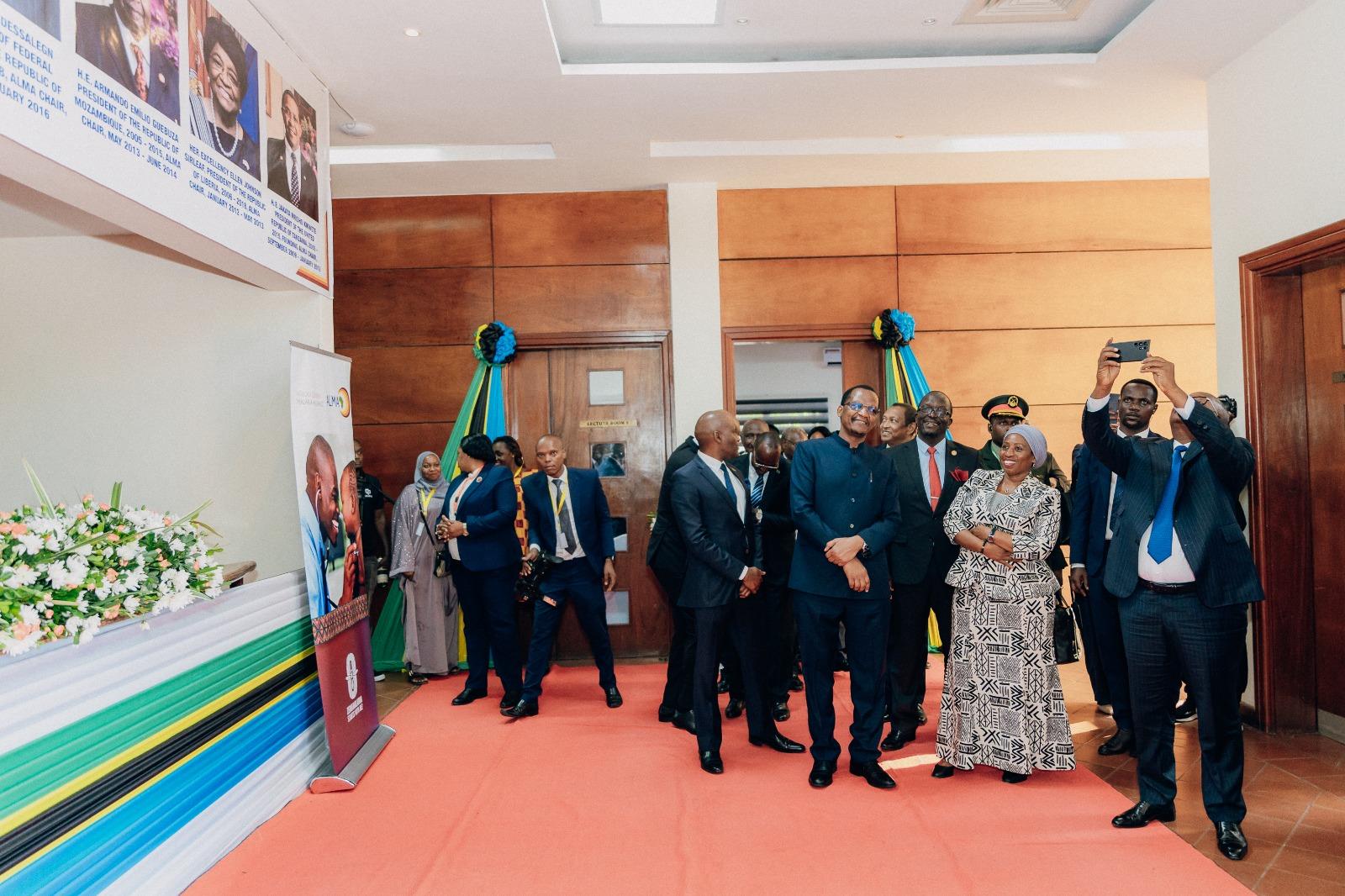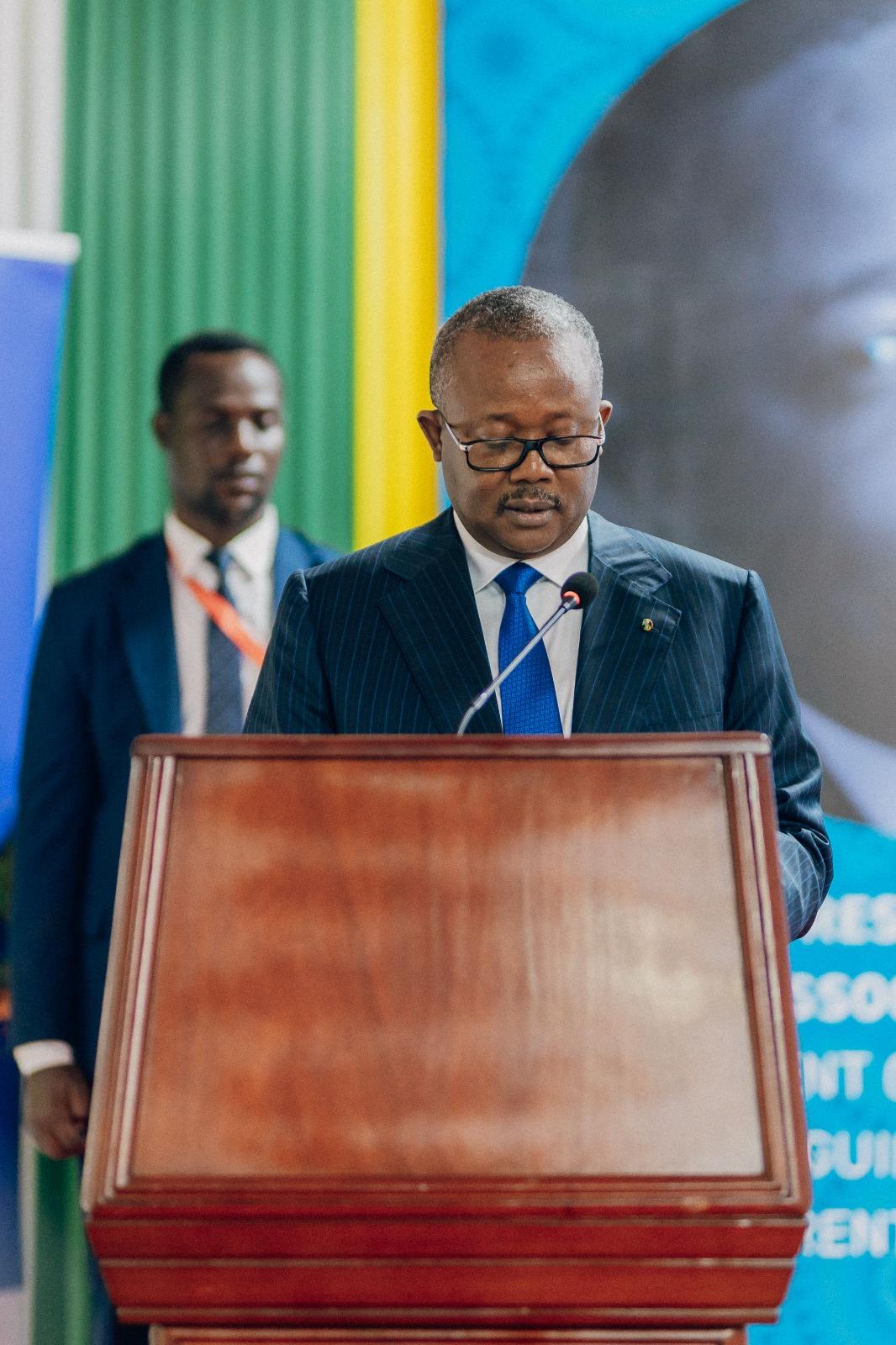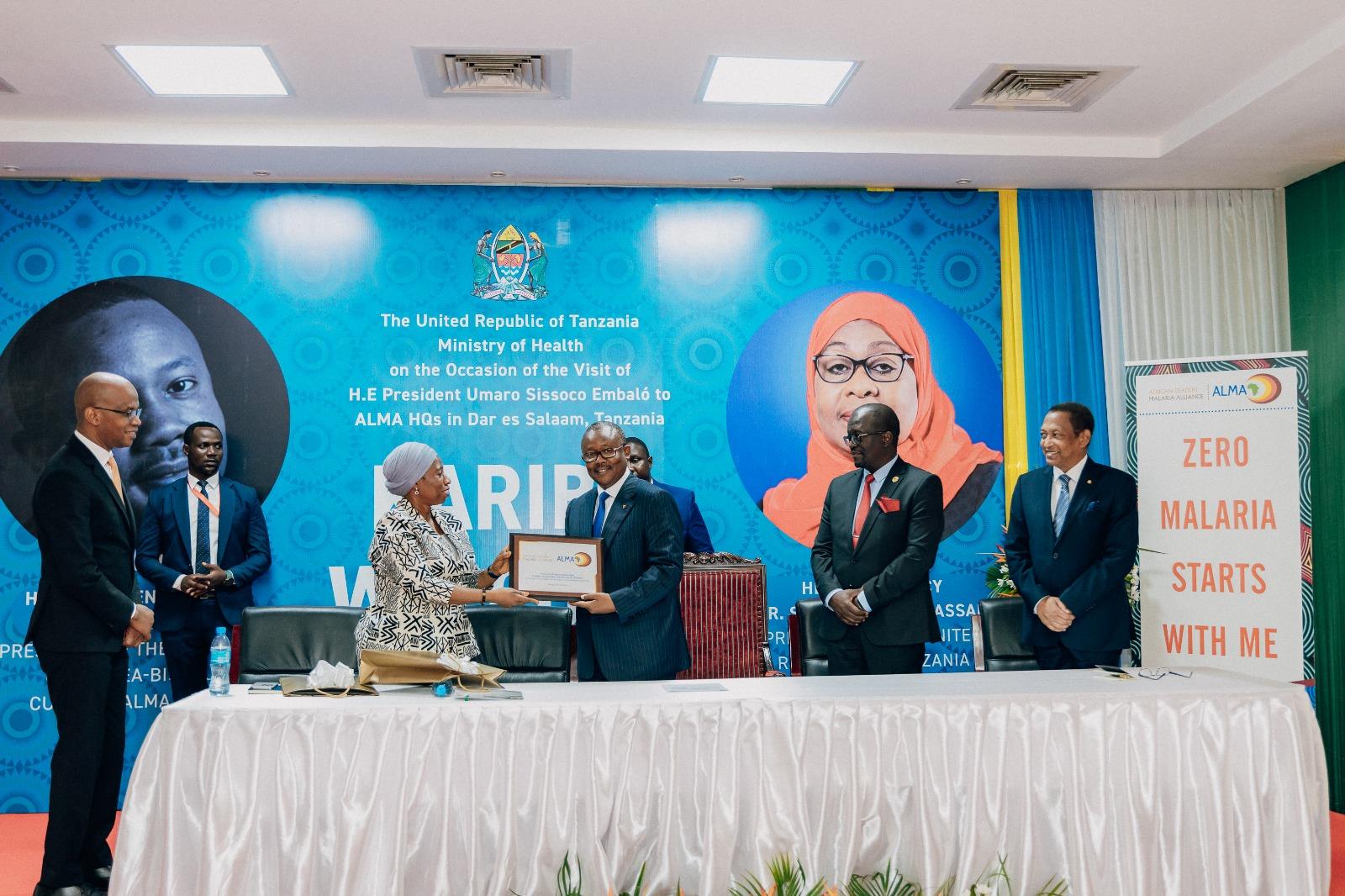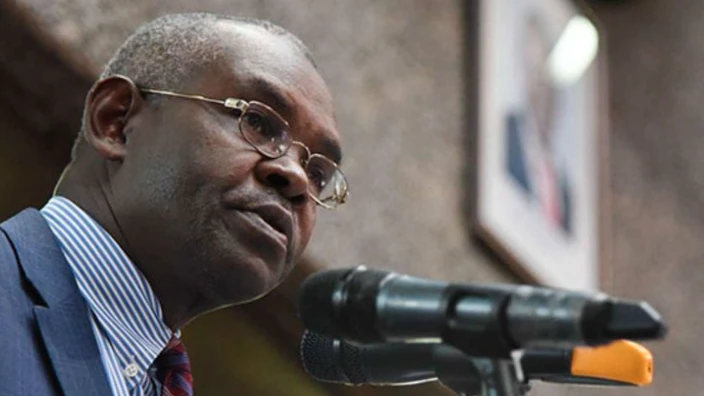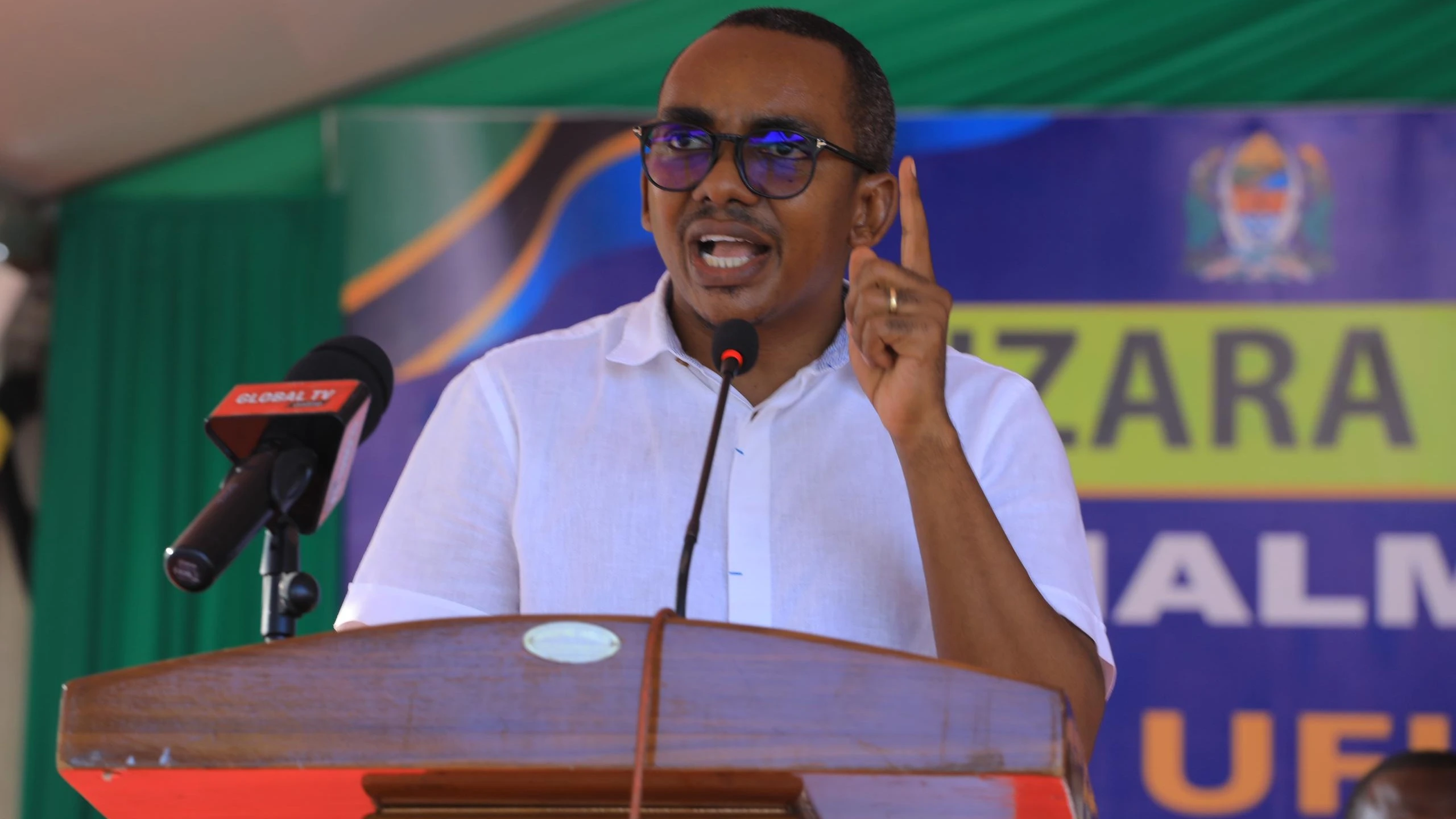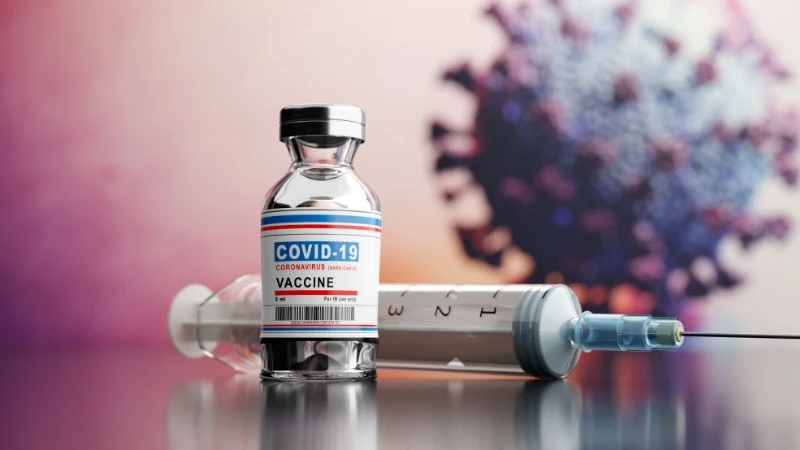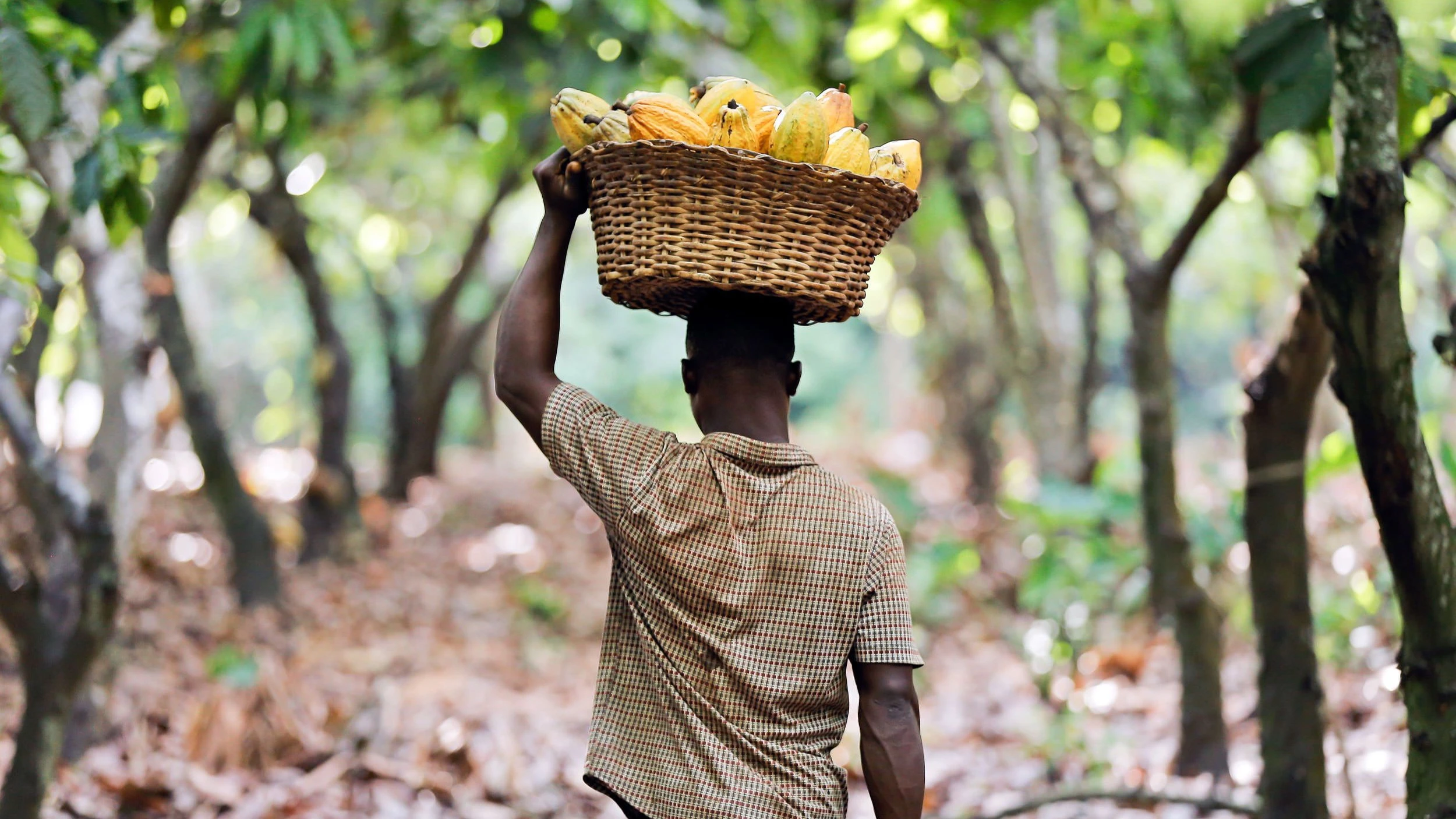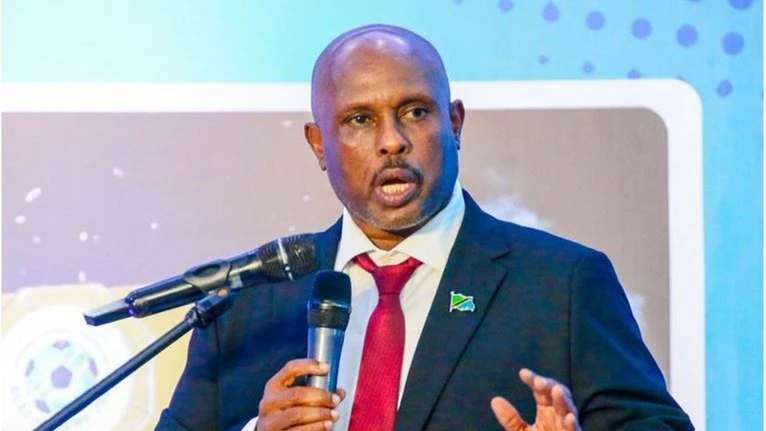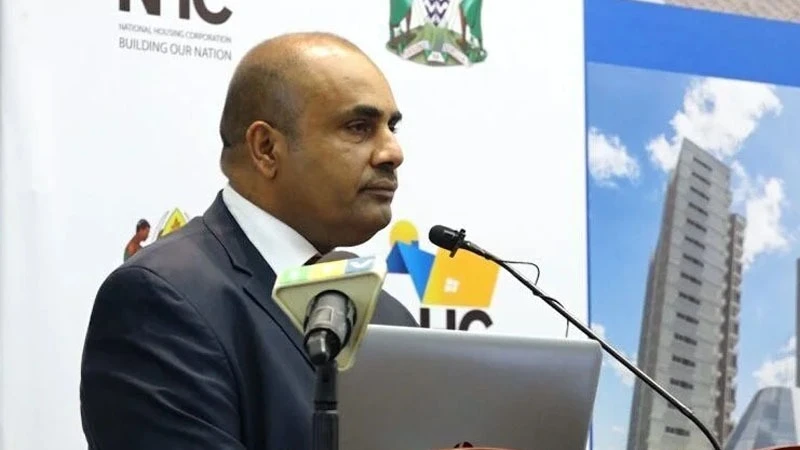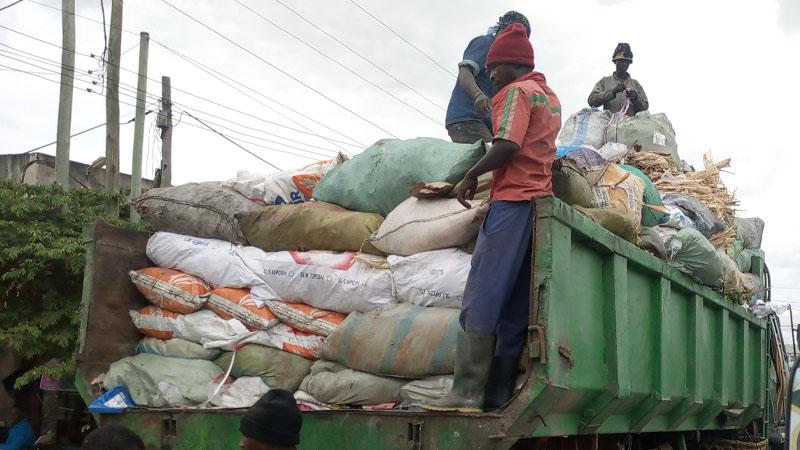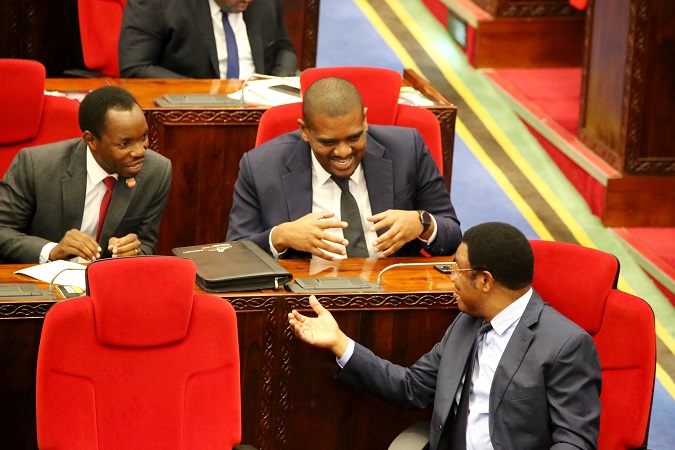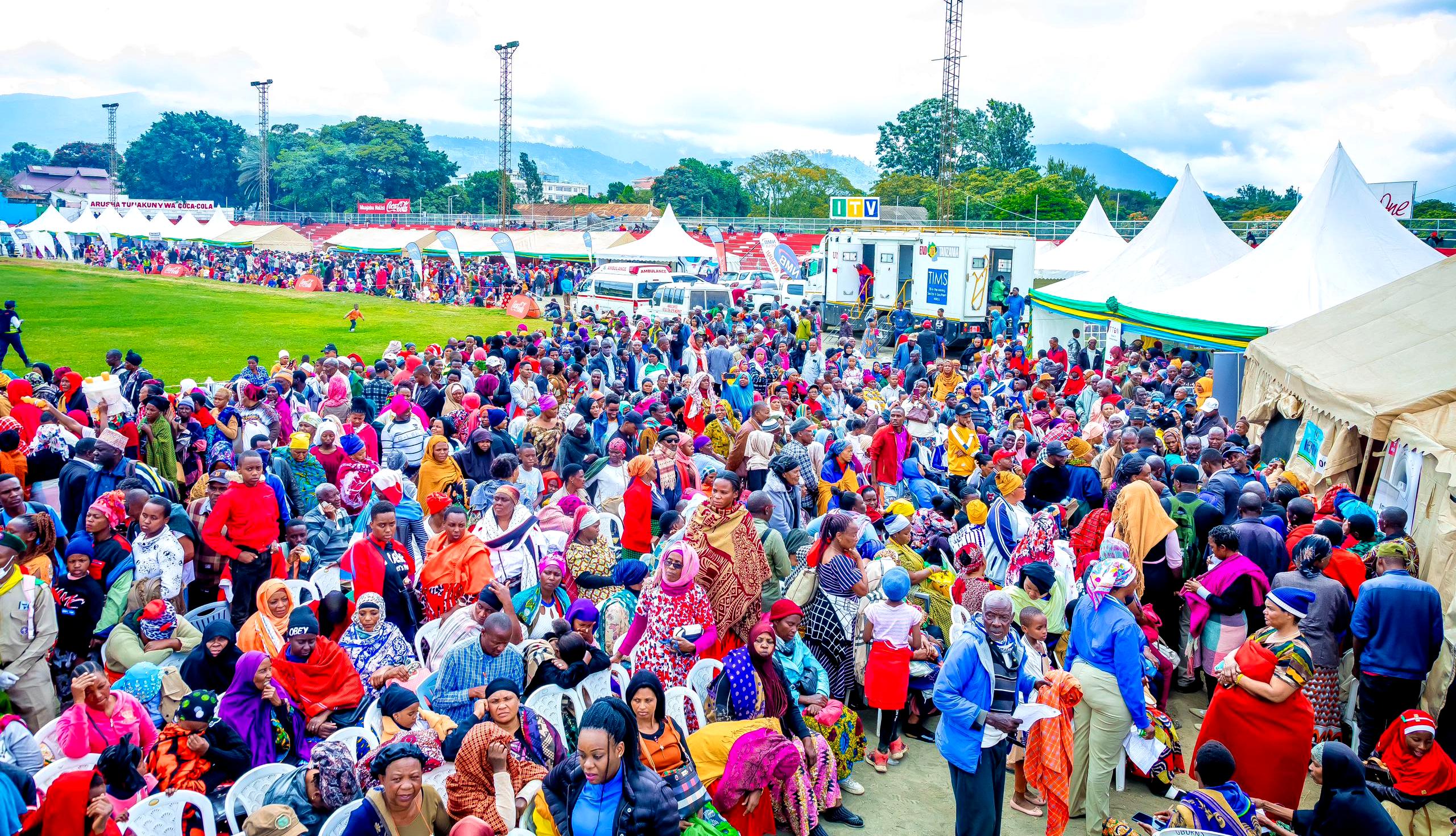President Embaló calls African states to prioritize and allocate resources towards eliminating malaria
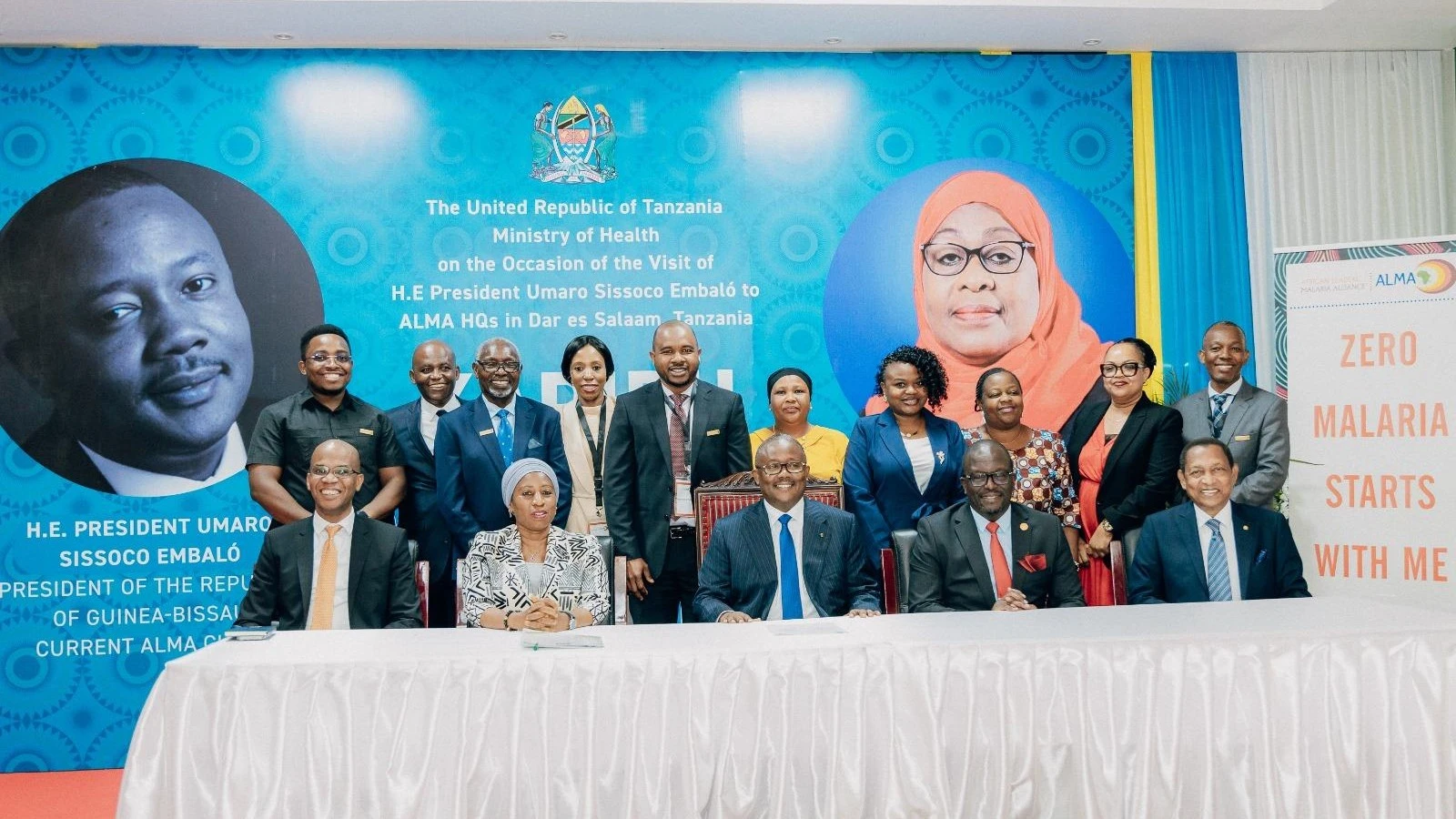
THE Chairperson of African Leaders Malaria Alliance (ALMA), Sissoco Embaló has asked African countries to ensure that they allocate resources in their budget from local sources to strengthen the efforts to eradicate malaria.
He has said that this will be a great benefit in investment because they expect to see an increase of $127 billion for the African economy and promote international trade by $81 billion if the countries succeed in eradicating malaria.
Embaló, who is also the President of Guinea-Bissau said this recently when he was on his official trip to Tanzania when he visited the ALMA Headquarters in Dar es Salaam.
He praised Tanzania's great contribution in the fight against Malaria and asked for more cooperation to get funds from the international fund.
He emphasized the need to develop joint responsibility, international solidarity and cooperation, to ensure that the resources collected are aimed at the countries and areas with the greatest Malaria infection in order to help the countries that have less ability to pay.
He called on the member countries to prioritize in preparing the agenda and allocate resources in the local budgets to eradicate Malaria and emphasized the importance of the African continent to ensure that they have the necessary resources to win the fight against Malaria.
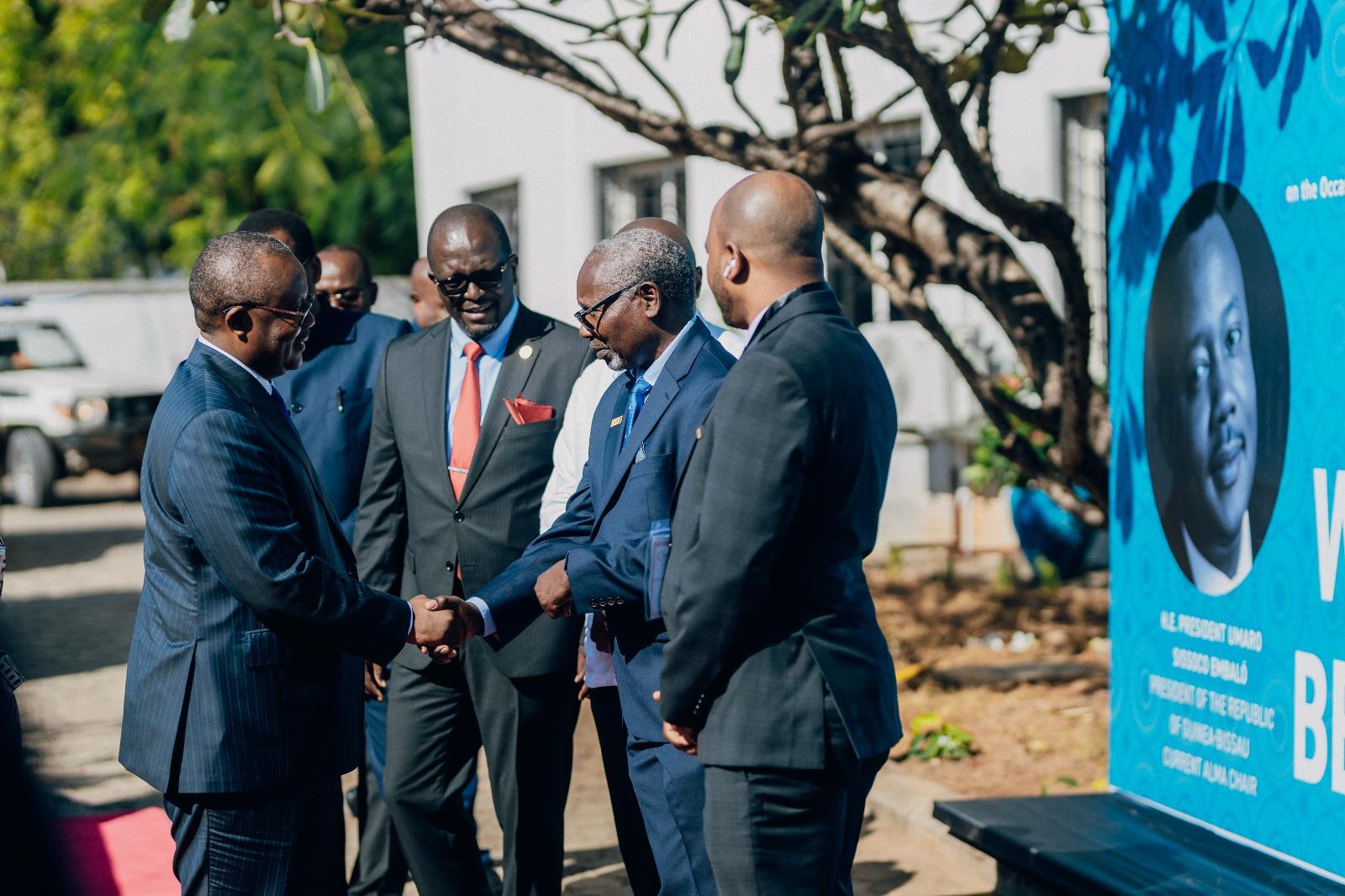
He said there us urgent need for countries to take action to reduce the negative effects of the global financial crisis, increasing resistance to pesticides and antimalarial drugs, climate change and human impact.
He said these threats represent the worst emergency facing malaria in 20 years and will lead to an increase in malaria and outbreaks if not addressed.
He said that according to the World Health Organization (WHO), since 2015, the speed of progress in reducing new cases and deaths from malaria has stalled in several countries.
He said Africa is out of track to achieve its important and effective goals related to malaria of the African Union's stimulus system in eradicating AIDS, Tuberculosis and Malaria.
He said that in recognition of the urgent need to remove Africa from the storm, the Ministers of Health from African countries, which have a high incidence of Malaria, have promised to significantly develop the fight against Malaria, and eliminate the deaths caused by the disease.
"Through the Yaounde Declaration, African countries have committed to increasing their efforts through strong leadership, major investment in health services infrastructure, and innovative strategies to deal directly with the disease," he said.
During his visit, he also thanked the Government of Tanzania on behalf of the entire African continent for providing the ALMA Secretariat Office in Dar es Salaam.
He urged member countries to follow the example set by the Republic of Guinea-Bissau and Tanzania in launching Malaria Eradication Councils and Funds, while also contributing local resources, especially from the private sector.
"These councils coordinate various sectors, and for the whole community towards the eradication of malaria. They have started collecting financial resources and funding from the private sector, the public sector, from civil societies and from the community, where more than $57 million have already been collected," he said.
Speaking at the occasion, the Minister of Health, Ummy Mwalimu, noted that Tanzania has made great strides in the fight against Malaria by focusing on the right intervention program to increase the impact of the results, resulting in a decrease in new deaths from Malaria from 50 percent in 1990 to 8.1 percent this year 2022."It is important for Africa to prioritize the production of health products in the country, in order to strengthen stability and reduce dependence from outside.
"Tanzania is the largest producer of insecticide-treated nets, and needs ALMA's support to adopt new nets that work well to prevent pesticide resistance," she said.
She said Tanzania also produces biological pesticides and asked the African Center for Disease Control (CDC) to help evaluate its quality in order to be able to sell it to other countries.
Top Headlines
© 2024 IPPMEDIA.COM. ALL RIGHTS RESERVED


